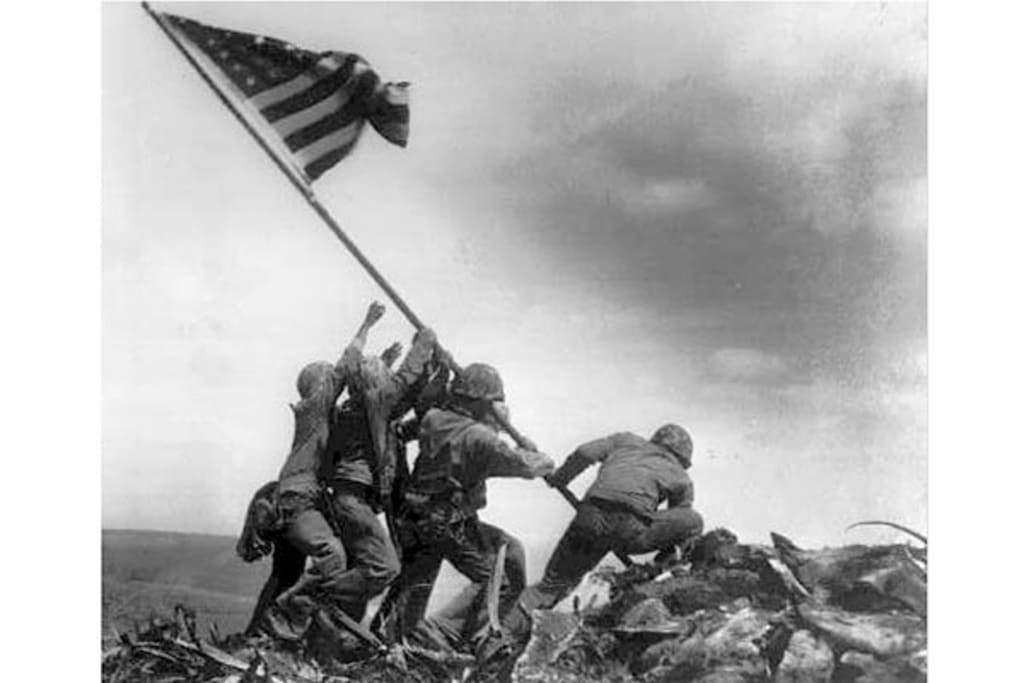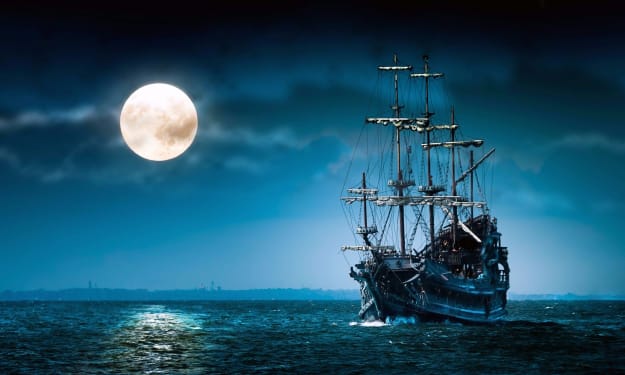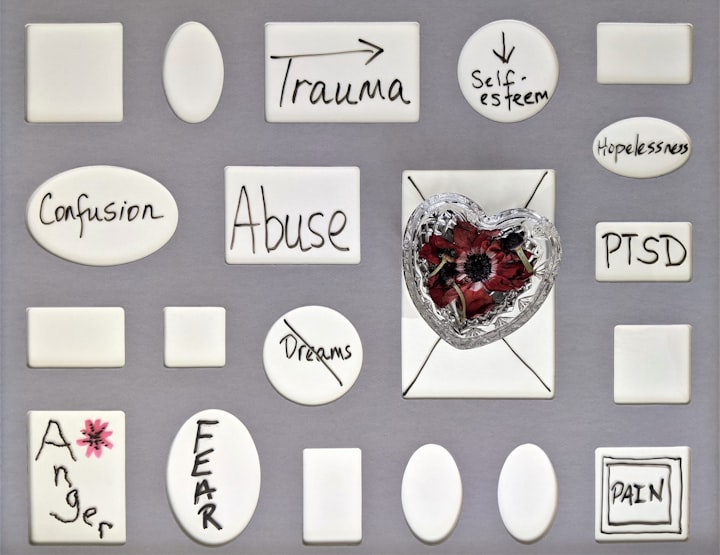
In William Strauss and Neil Howe’s book, The Fourth Turning, they envision human history as cyclical with different seasons, just as nature has its seasons. An article called “What exactly is the ‘Fourth Turning’ envisioned by William Strauss and Neil Howe,” witten by 3D Research, discusses the theory behind the book. The idea is that around every 20 years nations go through a different season or “turning”. “In simplest terms, the ‘First Turning’ is an upbeat era of strengthening institutions. The ‘Second Turning’ is an awakening, a passionate era of spiritual upheaval, when the old order comes under attack. The ‘Third Turning’ is an unraveling — a time when individualism is strengthened and institutions are weakened. The ‘Fourth Turning’ is a crisis, a decisive era of secular upheaval — the old order is toppled and a new one put in its place” (13D Research). The end of the fourth cycle brings about a great crisis that marks the end of the cycle.
What’s interesting about this theory is how it applies to the history of war. In the United States, the Revolutionary War starting in 1775 could be viewed as the end of the first cycle-literally creating the US as a nation. 86 years later, the Civil War began in 1861, which drastically changed our entire culture and political system. 78 years later marked the start of WWII, which established the US as the sole global superpower, created NATO and other alliance systems, and launched our economy into the “military-industrial complex” president Dwight Eisenhower warned of. 83 years after that, the current war in Ukraine marks the greatest period of tension perhaps in human history-if either side unleashes the nukes that now everyone has, the entirety of humanity could be wiped out. What’s fascinating is that these periods seem to follow this cyclical nature almost perfectly-the “Fourth Turning” when crises begin can be seen in all of these instances. About 20 years before WWII the Great Depression began and around 20 years before the war in Ukraine the housing market and banking crisis threatened to trigger another Great Depression. As Strauss and Howe put it, “A Fourth Turning can be long and difficult, brief but severe, or (perhaps) mild. But, like winter, it cannot be averted. It must come in its turn” (The Fourth Turning).
My point is that war seems to be an inevitability, perhaps even in a predicted time frame if this theory is to be believed. The rationale behind this concept of humanity’s seasons is that after 80 years have passed, almost everyone living through the earlier great crisis has passed away or no longer has power in politics. Because people forget how hard the dark days were, they are less effective at preventing crises as it seems like a myth and not a real threat at this point. This entire idea shows clearly why history, and war in particular, must be discussed-people must be informed of the past and the truths of war, lest we forget and fall into the endless cycle of conflict and bloodshed that humanity has been trapped in since its inception. War cannot be ended with war, as has been shown countless times. Instead, it must be ended with words-hence the importance of representing war through films, writings and other mediums.
Depicting war can be a controversial task. To look at war as purely positive and to glamorize it is to forget the tragedy and hardships that grow from it, yet to look at war as purely negative is to forget the accomplishments achieved through sacrifice. Therefore, it is the responsibility of creators of depictions of war to show both sides of war-both the marine fearlessly defending his fallen brother and the pictures of soldiers’ families who will never see their loved one again. In the film, Red Cliff, war is represented as both a positive and a negative. When speaking of the incoming war, Sun Quan says “When my late brother was 26, he conquered the Southlands. I am now 26. Yet I have done nothing” (Red Cliff part 1, 1:05:42-1:05:53). He is shown clearly viewing war as something to strive for, of proving oneself. He believes that no accomplishment save for that of war is worthy of mentioning, not thinking about the thousands of his people that will die and suffer should war break out. He only sees war as a means to achieve personal glory. However, later on in the film when Cao Cao’s army suffers from typhoid, his medical examiner reports that “They are weak from a long war and have lost all immunity. So typhoid quickly…” (Red Cliff part 2, 10:54-11:00). In the rest of the scene, Cao Cao is horrified at the loss of life and suffering, sick and deceased bodies piled up on the floor. This is an important scene as it does the job of highlighting the suffering caused by war, rather than focusing on the glory and benefits to be gained from it.
Speaking about the battle of Red Cliff, a historical article written by the opera group, All Things China, called Battle of Red Cliffs, An Ancient Chinese Warfare describes the war. It cites Cao Cao’s “ambition to replace the Han monarch” and his decision to “face the challenges to his dream of power” as the causes of the war (Battle of Red Cliffs). Drawn to war thinking of the benefits he could personally gain, Cao Cao thought nothing of the implications of his actions and viewed war as a great thing, a tool to achieve the power he’d always dreamed of. Zhuge Liang, on the other hand, faced the outcome of the war with sadness rather than the pride or glory of winning the war. His thoughts were that “despite the allies having defeated the most powerful naval force under the heavens of the time, the massive loss of lives in Cao Cao’s army broke so many families” (Battle of Red Cliffs). The article goes on to say that the night after the battle he went to the river for a solemn ritual of mourning, dumping “the third [cup] into the flow of the river, mourning all those buried in the water” (Battle of the Red Cliffs). While the article gives a quick summary of the war, it is sure to include both viewpoints on the war, both the usefulness of war in achieving one’s goals as well as the mourning for those lost. Even the article discussing the book The Fourth Turning describes both the benefits and tragedies of war. In a quote from the book, it says that “every Fourth Turning has registered an upward ratchet in the technology of destruction, and in mankind’s willingness to use it” (The Fourth Turning). Every global crisis gets more and more dangerous with our warlike capabilities constantly improving as we get better at slaughtering each other. However, the article also speaks about the Fourth Turning as a necessary reset, saying that “much like a forest fire, the Fourth Turning is a necessary part of the cycle to allow the future to change its course” (The Fourth Turning).
The final source I will be discussing throughout this paper is the anthology, The Other Side of Heaven by Wayne Karlin, Le Minh Khue and Truong Vu. This anthology, unlike the other sources discussed, rarely shows any benefits of the war, emphasizing the sadness of reality that soldiers after the Vietnam war faced. The closest this anthology gets to showing any positive outcome of the war is showing warped ideas of positive impacts, such as in the story Helping. “‘Most of the time,’ Elliot said, sighting down the barrel, ‘I’m helpless in the face of human misery. Tonight I’m ready to reach out’” (Karlin, Khue and Vu 112). While he is talking about shooting someone, Elliot is fearless and perfectly willing to fight to protect his family, his wife being threatened by some guy. The war has steeled him to the point that he is unfazed by threats and has no problem dealing with any threats that present themselves, even if force is necessary. Much more often, the suffering of war is shown, such as in Two Village Women, when two women wait years and years for their husbands to return. When one returns and his wife is away looking for him, the other’s response is “‘this time you have to wait for her’, Mat said, bursting into tears. ‘I won’t let you leave. My husband’s martyred already’” (Karlin, Khue and Vu 71). One of the husbands is alive, but both times he returns his wife is out and he must leave. This shows the separation of families and ruining of lives that the Vietnam war caused. In this way, every source discussed does its duty in representing the twin sides of war-why war can be a good thing and what people are dying for, as well as the steep cost to human life and well-being that any war is destined to cause. This prevents (most) readers from being pro-war and supporting the deaths of their fellows, while also preventing them from being blind to the causes of war and what veterans and the dead fought for. Sometimes war is necessary, but that makes it no less horrifying and tragic. WWII is one such example, in which the Nazis clearly needed to be stopped, but what resulted was the deadliest conflict in all of human history.
However, when it comes to representing war, oftentimes the writings, films, etc. are not about war itself, but rather about humanity as a whole. War, sadly, appears to be built into us as clearly as our ability to speak. War in a sense is just another form of communication, of conflict resolution when all other forms of communication have failed (or were simply not used). In this sense war is a manifestation of the human condition, one that should be studied and paid attention to in order to allow us to look deeply into ourselves, understanding the world and ourselves better. For example, in Red Cliff when Zhou Yu’s wife is asked how she can quote The Art of War, her response is, “‘to understand you, I must sneak glances at your books (Red Cliff part 2, 5:13-25:19). The Art of War is yet another representation of war and it talks about war in a very philosophical sense, comparing it to various aspects of everyday life. The fact that Zhou Yu’s wife, Xiao Qiao, read a book about war to understand her husband shows that because he’s a military leader, Zhou Yu sees the world in a certain way. His knowledge and experience with war impacts how he views and interacts with everything around him, Xiao Qiao wants to learn about war to learn about him. Here Red Cliff shows that The Art of War is not about war, but about a way of thinking. The article discussing The Fourth Turning also speaks of war as a way to understand humanity when it says “the risk of catastrophe will be very high. The nation…could succumb to authoritarian rule” (The Fourth Turning). This clearly states the human nature of preying on the weak. Those who can’t stand up for themselves are exploited and taken advantage of, as is overwhelmingly obvious in our current societal structure-marginalized groups hold little economic or political power, scammers steal money from the desperate people who just want to make a living, politicians are paid off by billionaires, large companies destroy the weak’s abilities to compete with them, police brutality against unarmed people, etc. The list could go on for hours. Thus when a “Fourth Turning” happens, there is a chance that an authoritarian government will take control by force and oppress the people, as seen in Germany and Italy during WWII. This particular aspect of war is seemingly ingrained in human nature, so depicting war in this manner allows the informed to be aware of what happens in their societies and remember what happens when a group gains too much power.
In terms of readers’/viewers’ experience of examining portrayals of war, it is important that they really think about what they’re reading/watching and don’t simply be entertained (at least with regards to real historical events). It is only by really considering the circumstances of the reality of what the war was like that we can have any say on what we think about it. In the story, Speaking of Courage, Norman Bowker looks back on his time in Vietnam and remembers a time when he couldn’t save his friend Kiowa. He says that as he laid in the mud he couldn’t stand the mud and, “not here, he thought. Not like this. He released Kiowa’s boot and watched it slide away” (Kharlin, Khue and Vu 162). Some readers upon hearing this would call him a coward or bad person for abandoning his friend and letting him die “just because of the mud”. But when you put the story in context, realizing that they were laying in literal shit to avoid mortar fire that could blow anyone up at any moment, as well as the fact that trying to get his friend out threatened to pull him under the mud, it becomes much harder to place unwarranted blame on Norman. When you think about the Vietnam War as a whole, this was likely some kid who had been drafted and didn’t want to go to war. Knowing about the guerilla warfare of the Viet Cong and the constant fear of being blown up by hidden enemies, traps or villagers they thought were friendly, the psychological stress these men endured becomes much more apparent. Once all of this has been considered, instead of feeling disgusted or angry at Norman for “letting his friend die,” readers of the story feel more sympathetic towards him, hearing of the horrors he had to endure just to survive. He couldn't keep pulling on his friend’s boot or they could both end up dead, so his mind justified him letting go by thinking of the smell of the mud. Unable to rationalize the helpless loss of a friend, his mind blamed him for his friend’s death and makes him think that he could’ve done more, as the truth that he was just as helpless as every other soldier was too much to bear given the conditions.
Interestingly enough, the article about the Battle of Red Cliff has a quote by Zhuge Liang: “If you can win people’s hearts, you don’t need wars; If you don’t know the situation, you can’t win any wars” (Battle of Red Cliffs). Here Zhuge Liang is expressing the importance of understanding the context in which events happen. If you don’t understand why a war is happening or what motivates its sides, you can’t hope to win it. Likewise, when thinking about depictions of war it is important the consider more than the basic facts-Germany allowing the Nazis to take power makes no sense until you hear about the economic collapse of Germany after WWI and the desperation of its people, who then turned to a leader who promised to make things better. By considering the setting of war, it allows us to better understand the sequence of events leading up to the conflict and the motivations for why people acted the way they did. Not only does this allow for us to look at history in a more critical and understanding manner, but it allows us to learn from the past. If we understand the conditions that create horrible wars and great human suffering, we can do a better job at avoiding such situations in the future, especially as military capabilities continue to grow and be able to wreak more and more havoc on humankind. We can also use this examination of the circumstances surrounding war to compare our current leaders and politicians to those of the past. During WWII, Roosevelt’s New Deal effectively lifted the US out of the Great Depression, transforming our nation to one of industry and global dominance in response to the threat of WWII. We can also identify tell-tale signs of dangerous trends in politics that historically have led to war and/or fascism, such as the limitation of free speech and deterioration of people’s trust in the government (not naming any names, but I think this sounds familiar). By recognizing the signs of trouble brewing that may spill into war, we can more effectively avoid or deal with such circumstances as well as hold our leaders more accountable. Seeing how the Boston Tea Party and civil unrest led to the Revolutionary War should, for example, be a cause of great concern when we see an angry mob storm the capital of the US and call for the deaths of our political leaders. In this sense, Zhuge Liang’s words ring true, only instead of winning the war through combat we hope to win the war by preventing it from happening in the first place.
Thinking about the morality of depicting war, I don’t think depictions necessarily have to be anti-war, but I do think they should be as realistic as possible if they are depicting a real event. War can bring about good changes-saving people from genocide, replacing a corrupt and outdated system with a new one, or defending a nation’s way of life and sovereignty are all noble causes of war. The Fourth Turning articles talks about the Fourth Turning as a “decisive era of secular upheaval-the old order is toppled and a new one put in its place” (The Fourth Turning). While upheaval and war is painful, the replacement of an outdated faulty system with a new and improved replacement, it seems that conflicts of this kind are good as a whole for society, allowing it to improve itself as time progresses. In the first story of the anthology of Vietnam War stories, The American Blues, sums up why war literature shouldn’t necessarily be anti-war but should still strive to be accurate. The author says that his story “is not about the war at all but the peace that followed the war,” as well as that “the life of war is essential to the story I have to tell” (Karlin, Khue and Vu 5). The keyword here is “peace”-the war was horrible and forced great suffering on many people, but peace was the outcome, and so it can’t be said that the war accomplished nothing. However, the truth of what life is like is essential in depicting war, because only with the truth can we fully understand the war.
Seemingly contradictory, it is equally important to acknowledge the potentially positive outcomes of wars (suggesting war as a positive) and understand the truths of war's tough realities (suggesting war as a negative). The fact is, humanity itself cannot decide on whether war is good or bad-when things are going well for us we praise peace but oftentimes we turn to war as a solution to times of struggle. To provide an honest, realistic account of war, both of these topics must be addressed. To only pick one is to attempt to convince the reader that the writer's view is right, shutting the door to any maturing of our thoughts or views as a society. What happens when people fail to look at and seriously consider both sides of a topic? Look to our own political system for an answer-both sides yell at each other about why they’re right and as a result nothing gets done, there is no intelligent deliberation in which people try to come to a common understanding or truth. This effectively halts progress, and so war depictions shouldn’t be one-sided in their views but give an unbiased account of what the war is. The horrors of WWII were in large part a result of the victors of WWI’s punishment towards Germany. Instead of looking at the background of WWI and seeing why war broke out in the first place, allowing at least a dialogue or discussion as to how the world moves forward, the victors destroyed Germany’s economy, solely placing blame on their shoulders and shutting off any form of understanding between the sides, creating the desperate and hateful breeding grounds for the Nazis’ rise to power.
We must not forget the realities of war in our depictions though. To avoid the brutality of war in its depictions is to avoid truly writing about war, avoiding its harshest realities and only depicting the parts deemed “appropriate”. Well, if we’re tackling a topic such as war, it’s pretty important to fully consider the facts about what happened or else our views will be skewed and we cannot pass informed judgements, nor can we praise our veterans or those who gave their lives for our ideals. In the movie Red Cliff, when a messenger sent to Cao Cao is returned beheaded, Zhou Yue responds by leading his army in a toast. “To the first hero who sacrificed his life for Wu,” he says as he and his soldiers dump cups of water on the ground (Red Cliff part 1, 1:30:17-31). Rather than shy away from the fact that an innocent man was murdered simply for sending a message, the film decides to use this moment to emphasize the sacrifice of these men for their kingdom. By not forgetting the horrors that war has brought on these people, all viewers solemnly honor people who gave their lives for whatever greater good they believed in.
This, perhaps, is the most important factor in depicting war. Whether you think a war is justified or not, the fact is that every casualty on both sides of the conflict was a human just like you and I, with a family and future to return to. They sacrificed all of that for whatever cause they fought for, whether willing to give their lives or not (such as in the case of civilian casualties). To talk about the impacts and outcomes of war is important, but it is far more important to think about its impact on those involved and remember the countless dead whose lives were cut short. At the end of the day, kingdoms and empires rise and fall, land is gained and lost, and economies are made and unmade, but it is the people that give all of these factors their meaning. Therefore, the human impact of war is what should be stressed above all and considered before all else. If we forget war’s immense impact on humanity and those involved, then we will have forgotten our humanity itself, condemning us to an endless cycle of war and death until humanity ultimately destroys itself. So it is up to us, writers and readers of war, to relentlessly hold onto that which makes us human and remind the world not to forget.





Comments
There are no comments for this story
Be the first to respond and start the conversation.